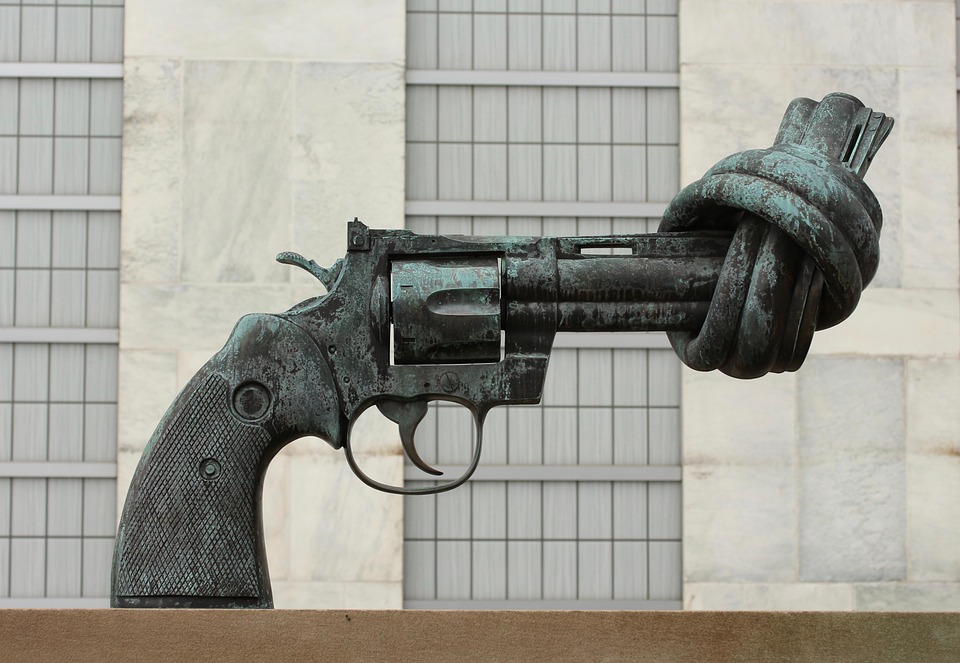In an epoch characterized by geopolitical tumult and existential predicaments, the Bahá’í teachings present a compelling paradigm for fostering transformative peace through collective action and institutional evolution. The notion of a “United Nations with Teeth” suggests an entity empowered to enforce international norms, uphold human dignity, and transcend the constraints of nationalistic fervor. This discourse explores how the tenets of Bahá’í philosophy can enkindle a genuine global governance model poised to tackle the complexities of today’s interconnected challenges.
As an initial matter, Bahá’í teachings emphasize the oneness of humanity, positing that every individual bears an intrinsic value that transcends superficial distinctions. This fundamental principle undergirds the call for a unified world order. In this context, a reimagined United Nations could serve as a fulcrum for international cooperation, strategically designed to address the multifaceted issues confronting humankind—from armed conflict to pandemics.
Enhanced international cooperation necessitates not merely an assembly of nations but a commitment to systemic transformation. The Bahá’í perspective advocates for the establishment of a consultative electoral process among diverse nations, engendering a global citizenship ethos that transcends parochial interests. This governance framework would embody democratic ideals while incorporating insights from various cultures, thereby nurturing a holistic approach to decision-making where dialogue supersedes discord.
Moreover, the teachings assert that justice is a cornerstone of peace. A reformed United Nations must operationalize this principle, transitioning from a passive observer to an active advocate for human rights and social equity. Such an approach encompasses the establishment of enforcement mechanisms that would address violations comprehensively and impartially. Furthermore, the implementation of a robust system of accountability would dissuade transgressions and bolster trust among member states.
Critical to realizing this vision is the concept of consultative decision-making embedded within Bahá’í discourse. This model champions collaboration and collective inquiry, facilitating a deeper understanding of perspectives. By leveraging diverse insights, leaders can forge resolutions that reflect the collective will, thus instilling a sense of ownership among all participants. The discourse surrounding global policy should evolve beyond mere negotiation to a transformative dialogue that seeks to harmonize interests, promoting a peaceful global society.
Incorporating a Bahá’í framework into the workings of a reformed United Nations also calls for the proliferation of educational initiatives aimed at fostering a culture of peace. Educating the global populace about mutual respect, empathy, and the shared fate of humanity can cultivate an environment conducive to greater understanding and cooperation. Such education should underscore the importance of spirituality and moral values, engendering a collective commitment to the betterment of society as a whole.
Additionally, the Bahá’í teachings underscore the importance of economic equity in the pursuit of peace. Economic disparity serves as a breeding ground for conflict, engendering disillusionment and resentment. A revitalized United Nations should advocate for equitable resource distribution and sustainable development, fostering environments where individuals can thrive regardless of their geographical or socio-economic circumstances. This requires an innovative approach to global economic systems, underpinned by fairness, opportunity, and collaboration.
Scientific advancement and technological innovation can play a pivotal role in actualizing a “United Nations with Teeth.” Embracing technology as a tool for global connection and problem-solving can pave the way for efficient dialogue and rapid dissemination of knowledge. The Bahá’í teachings assert that science and religion must work synergistically, promoting a deepened consciousness about ethical considerations in scientific endeavors. Establishing ethical guidelines for technological development can fortify global peace initiatives. Responsible stewardship of resources, particularly in relation to environmental sustainability, must be integrated into the governing paradigms of international bodies.
Furthermore, the interplay of individuality and collectivity in Bahá’í thought provides a nuanced lens through which to perceive international relations. The imperative of participatory governance and global engagement fosters a sense of belonging among citizens of the world. The restructured United Nations should engender mechanisms for grassroots participation, thus ensuring that marginalized voices are acknowledged and heard. Representation at all levels of decision-making is vital, allowing for policy creation that resonates with the lived experiences of diverse populations.
Lastly, the teachings advocate for the unity of the human family as a fundamental tenet for achieving lasting peace. Bridging gaps between contrasting ideologies and facilitating reconciliation among disputing parties is imperative. Transformative diplomacy that is rooted in mutual respect and understanding can catalyze healing across cultures and communities. Implementing conflict resolution frameworks within the United Nations would fortify its capacity to mediate disputes effectively, fostering an environment where peace can flourish.
In sum, the vision of a “United Nations with Teeth,” augmented by Bahá’í principles, offers a path toward real power and real peace. This systemic overhaul, grounded in the tenets of justice, collective inquiry, education, economic equity, and technological synergy, can revitalize the international community’s capacity to navigate complex global challenges. It invites a contemplative engagement with the notion of shared destiny, urging humanity to pursue a holistic, harmonious existence. Only through transformative governance can we sow the seeds of a future defined by unity, equity, and sustained peace.
